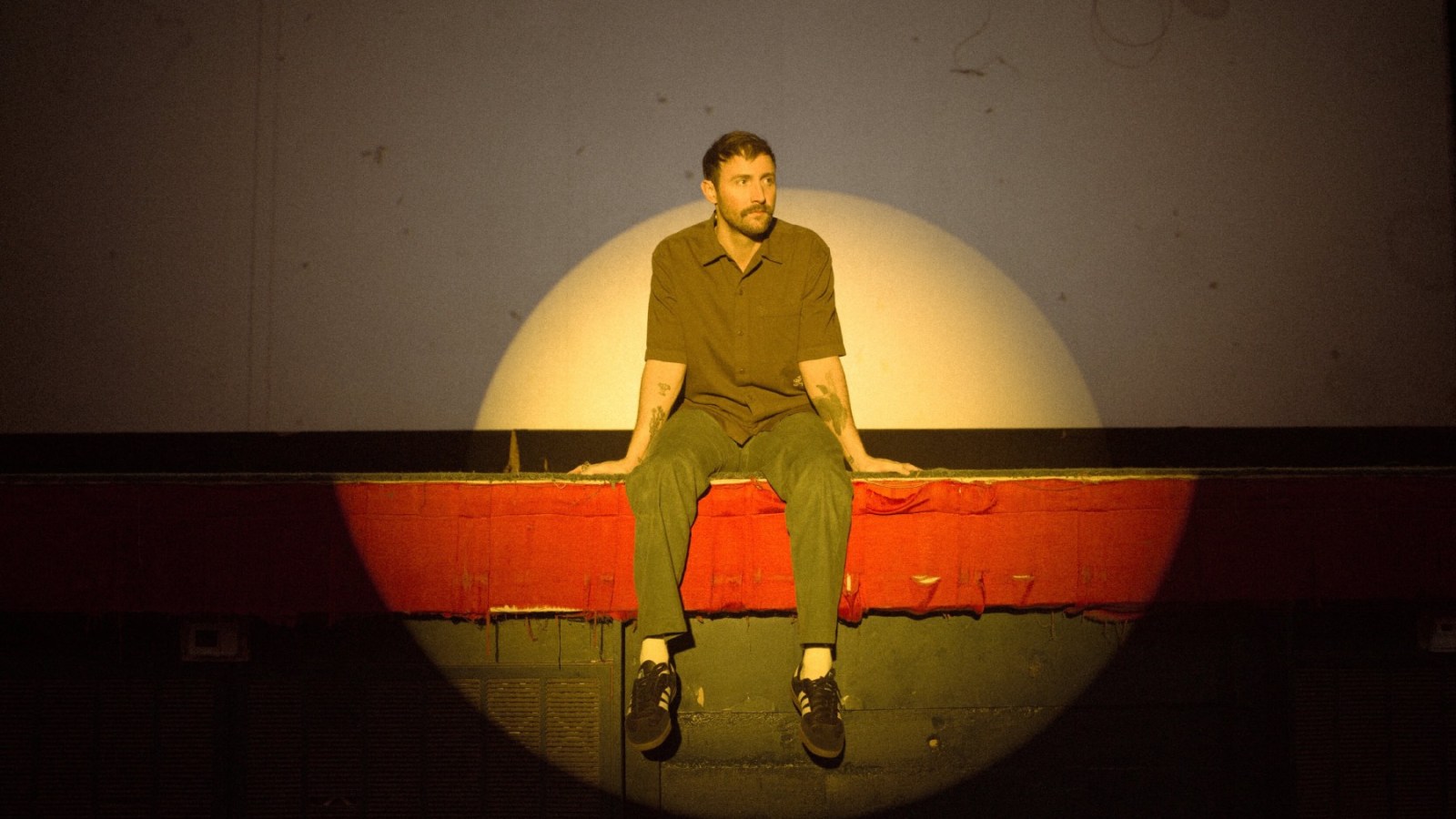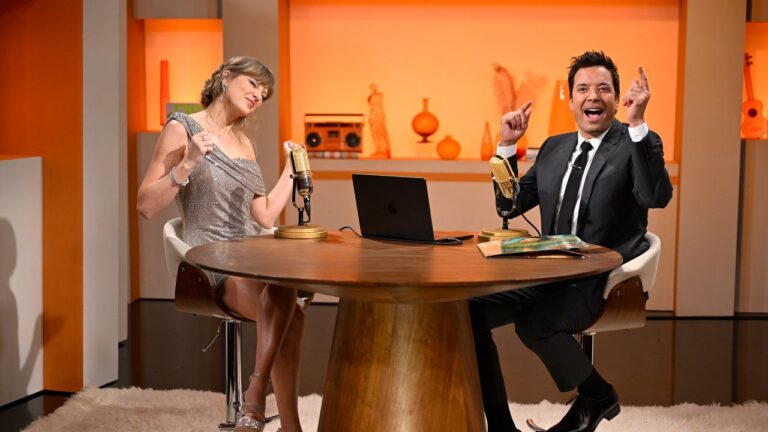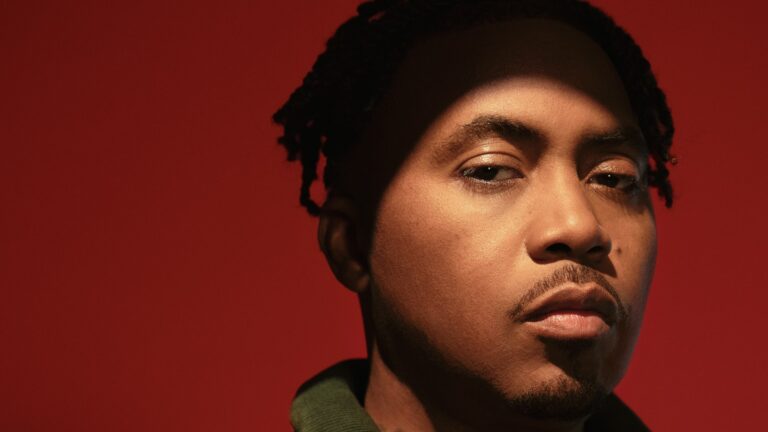Ruston Kelly took his seat in the middle of the Bluebird Cafe, the tiny strip-mall bar-and-grill at the outer reaches of Nashville that serves as one of the most important proving grounds in the world of songwriting. His choices for a venue to release Pale, Through the Window in early September were nearly limitless, and Kelly picked the Bluebird. “I wanted to do it where I started in this town,” he explained to the crowd before he sang his first note.
Songwriters play the Bluebird in the round, literally seated in the middle of the room, surrounded on all sides by tables and the clank of bottles or silverware. Three other artists joined Kelly on this night: Katie Pruitt sat to his left. Jarrad K, who produced Kelly’s new LP, was across from him. Ryman, a young mononymous songwriter unfamiliar to Kelly rounded out the bill. His parents and girlfriend of a year, girlfriend, Tia Cubelic, claimed the nearest table.
Then, Kelly shared most of Pale, Through the Window with the world for the first time. It’s a 13-track album inspired by a spiritual awakening and fresh love, and a reconnection with Nashville. Kelly has made a career of baring his soul in his music, but never quite like this. His catalog is built upon heavy, sad songwriting, and this record centers around gratitude. It called for an intimate release, and the Bluebird provided such a setting.
“I wanted my album release night to not fully be about myself,” Kelly tells Rolling Stone. “I wanted the album release night to be about why I do this, and why I do this in Nashville — the connection to family, to home, to my friends’ families. My girlfriend was there. My parents were there. My close friends were there. I also realized that night, looking over at that kid, Ryman, who is immensely talented, that I was in the same position — just reversed — from when I was trying to make it here.”
The record is not about coming home, though Kelly has recently moved back to Nashville after living for four years in the northern Tennessee town of Portland. Nor is the record about his 2020 split with Kacey Musgraves. That was covered in his 2023 project The Weakness. And it’s not about kicking alcohol and cocaine, which Kelly did nearly a decade ago.
The sum of those experiences left Kelly feeling empty and mired in an existential crisis by early 2024. This is where Pale, Through the Window was born.
“On paper, everything was pretty great,” Kelly says. “Everything seemed to be OK, but it was so obvious to me that a sense of clarity — and what I was anchored by — didn’t really have a form to it. I was single, but I wasn’t really ready to mingle, you know? I was living in a way that wasn’t blank, but purpose-wise I felt vague, just as a person. That was the dominant theme of where I was at.”
In June 2024, while sitting at his piano, Kelly found God — which he emphasizes is not the same as finding religion. He found himself grateful for the simple gift of expressing himself, and he committed to the feeling. A short time later, he found Cubelic.
The notions of coming from somewhere and belonging to someone both stuck with Kelly.
“God became the center of my experience and reality, and everything would then flow from that. Now that there’s an anchor, the stakes are different. And I’m not talking about heaven or hell, or anything religious. I’m talking about coming to the conclusion that I belong to someone now, and my soul belongs. I’ve been given so many amazing things in my life, and my duty now is to honor those things.”
A decade earlier, Kelly would have filled a void in his life with substances. This time, it’s gratitude — to God, to his partner or to his family. Eventually, he let gratitude shape his art.
Pale, Through the Window came together in an extremely short timeframe. Other than the title track, a string-heavy lament of his own past that Kelly wrote before his spiritual and personal rebirth, he had nothing in mind when he and Jarrad K booked studio time in late summer 2024. With his, recent connection with God, Kelly decided to take a leap of faith.
“I only had ‘Pale Through the Window,’ which was part of the story before,” he says. “That’s why the album opens with it. But I didn’t have anything else. It was an act of faith, not just in my life circumstances, but wholesale. There has to be a trust beyond what I’ve tried to do and wrangle myself. And the creative process was part and parcel to that. I just trusted the muse. I trusted that it would come to me at the right time. It had never failed me before, but it was getting pretty down-to-the-wire.
“About two weeks before we started, one night, it just kind of hit me what this record was gonna be about, and what angle I was gonna tell the story from.”
Once he wrote one song, the rest came in in a flurry. Kelly had a series of co-writes with other artists scheduled in Nashville, and he would wake up early to write his own music before heading off to those appointments, then hustle home and pick up where he left off.
He covered all the ground he knew to cover in the process. He sings about accountability and atonement for pain he caused others in “Twisted Root,” a song that bucks the notion of gratitude on the album on the surface but which Kelly sees as the key to unlocking the entire theme. “I don’t think that gratitude can be fully grasped by someone if we don’t know what the stakes were to get there in the first place,” he says. He leaned heavily into his self-described dirt-emo stylings on “Pickleball” while singing about his first date with Cubelic, and addressed God directly on “Still.”
“Still” is the song that threads Pale, Through the Window together. When Kelly sings “You sent me a love like I’d never had,” he’s addressing his creator. But people in his life hear something else entirely, and it’s what Kelly hoped for in the entire project.
“That song is the capstone spiritual statement on the record,” he says. “Like every song on this record, I’m not asking everyone to see it through the same lens that I do. When I play it for my dad, he relates it to my mom — through all the difficulties of getting to where they are, it’s basically a love bigger than ourselves. The things that remain no matter what happened, that’s the truest form of love. Through my own lens, that was to say to the creator that, even in the times when I felt loneliest, that presence was still there with me.”
By Kelly’s standards, he has not toured much since he wrapped up the shows he played in support of Weakness. He was a high-profile act on February’s Holiday from Real cruise in support of Jack’s Mannequin, Something Corporate, and Andrew McMahon in the Wilderness. He played a pair of sold-out shows at Nashville’s Basement East in March after he released Dirt Emo Vol 2, an all-covers record that featured Kelly’s take on artists like Goo Goo Dolls and Avril Lavigne. The Basement East concerts featured Kelly’s father, Tim, playing pedal steel and his sister Abigail — who tours with Dashboard Confessional — on vocals. “I wouldn’t have been able to do it without them,” Kelly reflects on his dad and sister, both of whom appear on Pale, Through the Window.
For the most part, though, his break from songwriting went hand-in-hand with a break from the road. He read a lot of history and played a lot of Nintendo Switch, but he held off on a proper tour until early October.
Now, though, he is booked through February on a coast-to-coast run that he hopes fans see as a chance to re-engage with a catalog that dates to Dying Star, his 2018 debut.
“They’re gonna experience the 2.0 version of these songs,” he says, “and they’re really gonna experience something that’s special to me, which is playing songs that I’ve never played live before.”
Cubelic will likely be in tow, too.
The closing track on Pale, Through the Window is “All In,” and Kelly wrote it for Cubelic. Kelly’s longtime fans will recognize the raw, personal emotion he injects into the lyrics. It’s his commitment to brand-new love that will likely throw them for a loop. He wrote it after his first date with Cubelic. He recorded it in a single take, adding it to the album with no edits.
“I felt like maybe I was jumping the gun or something when that came out after a first date. I was a little scared of it, because that’s a statement that I have not made on record. Then, I realized that there was nothing to be over-assessing about it. That came out of you because that’s how you really feel. That feeling crystallized as the relationship grew. This is the person. I do want to say this.
“We were supposed to go on a date with a bunch of friends, and they all bailed on us. After the dinner, it was raining outside, and…. it was the first time I ever sat down with a partner and, like, just sang songs for the joy of it. She went, ‘Grab the guitar and sing for me!’ I was thinking, ‘This is kind of all that I’ve ever really wanted.’ That was the night that I started writing the album.”
Kelly told this story at the Bluebird before playing the song near the end of his set. He kept a steady gaze on Cubelic as he worked his way through lyrics like “You came in, and cracked me wide open, and all my worries went so far away.”
When he finished, a teary-eyed Katie Pruitt led the crowd in an ovation.
Josh Crutchmer is a journalist and author whose latest books, Never Say Never and Red Dirt Unplugged are available via Back Lounge Publishing.



